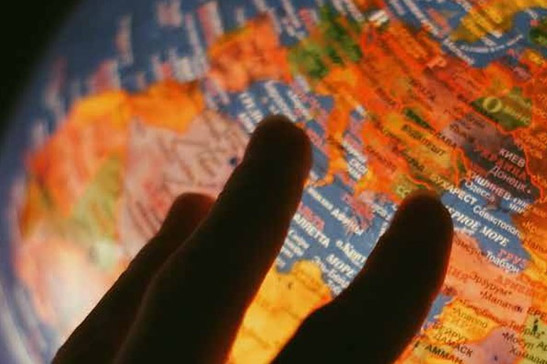30.06.2022
Armenia
Armenia to go cash-free. Starting in July, all major transactions will have to be made electronically. But some are skeptical of how it will all work. The new law, passed by parliament on June 9, affects business transactions of more than 300,000 drams (about 720 Usd) and transactions between individuals of more than 500,000 drams (1.200 Usd). That limit for individuals will be reduced to 300,000 drams in July 2023.
Azerbaijan
Masdar to develop up 10GW of renewable energy "Mega Projects" in Azerbaijan. The deal includes measures to study and strengthen the network and implement processes for the export of electricity, decarbonisation, hydrogen production and export. The plant, expected to start commercial operation in 2023, will help to generate half a Bln of KWh of electricity annually, enough to meet the needs of more than 110.000 homes, and will reduce emissions by more than 200.000 tonnes per year, while also creating valuable jobs.
A number of European countries have approached Azerbaijan seeking to buy gas. Azerbaijan currently sells gas to Turkey, Georgia, Greece, Bulgaria and Italy via pipelines which bypass Russia. Azerbaijan plans to double capacity of its Trans-Anatolian Natural Gas Pipeline, which currently supplies 16.2 billion cubic metres (bcm) per year to Turkey and southern Europe, in four to five years.
Georgia
India banned commercial surrogacy. Now, future parents are flocking to Georgia, a rare nation where it's legal and relatively cheap. A law prohibiting commercial surrogacy passed by India's Parliament in December has upended the sector in a country that was a surrogacy capital for years. Georgia is emerging as a favored destination.

Kazakhstan
Kazakhstan might face a gas shortage due to large consumers. Kazakhstan ranks 22nd in the world in terms of gas reserves. However, gas consumption is growing steadily from 2017 to 2021; the increase amounted to about 35%, or an average of 7% annually. Domestic market demand will surpass the available gas reserves by 1.7 billion cubic meters, and if no prompt measures are undertaken, gas export will have to be stopped in 2023.
The Presidents of Kazakhstan and Tatarstan meet in Saint Petersburg. The heads of state discussed the implementation of joint projects with KAMAZ and TATNEFT companies, whose leaders also attended the meeting. In 2021, mutual commodity turnover amounted to 423 Mln Usd; in January-April 2022, it reached 143 Mln Usd. Significant projects in the car-making industry are successfully implemented. The Inter-Regional Forum of Kazakhstan and Russia offers good opportunities for cooperation expansion.
Chevron and KazMunayGas set on unlocking lower carbon potential in Kazakhstan. As decarbonization initiatives make inroads in the energy sector, the U.S.-based energy giant, Chevron, has joined forces with JSC National Company (NC) KazMunayGas (KMG), a firm representing Kazakhstan’s interests in the national oil and gas industry, to collaborate on evaluating, investigating, and pursuing lower carbon opportunities in the country.
Kyrgyzstan
Kyrgyzstan National Bank predicts a 20% decline in remittances. More than 1 million Kyrgyz nationals – roughly one in every six people – live and work in Russia, making the value of remittances of critical importance to the economy. In 2021, Kyrgyzstan received more than 2.7 Bln Usd in remittances. Of that total, 2.1 Bln Usd came from Russia. These transfers equal around 30% of gross domestic product. The fallout from Ukraine-linked sanctions far outweighs the blow felt by the COVID-19 pandemic. While the spread of the coronavirus and the concomitant lockdowns caused the value of remittances to drop in 2020 by a relatively negligible 26.6 Mln Usd year-on-year, the drop in 2022 may be closer to around 400 Mln Usd.

Tajikistan
Iran and Tajikistan poised to strengthen cooperation. In the energy field. The Islamic Republic of Iran and the Republic of Tajikistan emphasized the need to enhance bilateral trade and economic relations, especially in the energy field. Continuing the path of reviving Iran's energy diplomacy, the Deputy Petroleum Minister for International Affairs and Trade met with a delegation from Tajikistan headed by the Deputy Minister of Industry and New Technologies to emphasize the development of economic cooperation between the two countries.

Turkmenistan
Turkmenistan resumes construction of the Akina-Andkhoy railway in Afghanistan. This branch is part of the first trans-Afghan railway corridor. The laying of the branch is carried out under a previous agreement between the Turkmen Railways Agency and the Afghan Railways Organization.

Uzbekistan
The World Bank has improved its GDP growth forecast for Uzbekistan for 2022 to 4.3%. This follows the next report on global economic prospects for 2022-2023. Before this, the World Bank published forecasts for economic growth in 2022 of 5.5%-5.6%. The current estimate is noticeably lower than theirs. However, the recent figures look more optimistic against a slowdown in the economy to 3.6%, expected in April.
Uzbekistan and Russia's Rosatom discuss 'cost optimization' for the nuclear plant. According to the concept of the development of atomic energy in Uzbekistan for 2019-2029, the construction start for a nuclear plant is scheduled for 2022. The plant would be built at the expense of the Uzbek state budget as well as with a state credit from Russia. The project provides for the construction of a nuclear power plant with water-water reactors of the VVER-1200 type with a capacity of 1.2 GWh in the Jizzakh region

